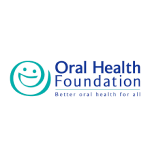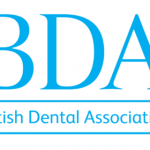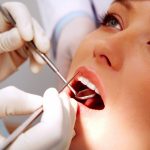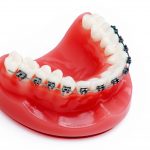ADAM President Lisa Bainham talks to Practice Manager, Edd Jones, who is also Partner and Business Consultant at C&E Consult, about KPIs and how important and relevant they are to your dental practice…
I’m back once again with Edd Jones from C&E Consulting and today we are talking about KPIs. First of all, I think that the term can frighten some Practice Managers and it really doesn’t need to! Once you get into the habit of measuring them it really does become second nature.
EJ: Completely agree Lisa. Put simply, KPI’s are measures of your business’s performance in key areas, including productivity, financial measures and core non-financial measures, such as new patient conversions and plan patient numbers. I would recommend completing your KPIs at least monthly. I’m sure most readers have heard of KPIs, but what actually are ‘KPIs’ and how are they relevant to your dental practice?
LB: We have included a list below is a list of what Edd and I think are the absolutely key generic KPIs for your practice along with a brief description of the why’s and wherefores. This isn’t an exhaustive list or role/department specific and the KPIs will vary from practice to practice (dependent on size, NHS/private etc), but it’s good to have a starting point.
So, in no particular order…
- Clinician Productivity (Financial):
This is a great starting point and will help you measure whether your clinical team are measuring up. This also gives you an instant and daily guide as to whether your chairs are being fully utilised and have patients sat in them! What measure you use to actually get this information is open to discussion and can be tailored to meet your practice’s specific needs – this can be as simple as the chair time occupancy as a percentage e.g. this week we had 93 per cent chair time occupancy. However, this does not give you any idea of whether your pricing in relation to the occupancy is productive.
- Sundry Sales (Financial):
Sundries will never make rich, however they are a useful addition to your income. Pricing these correctly is essential, but that is an easy calculation – the cost price (Don’t forget VAT), plus 50 per cent of that cost price = retail price… right? Anyway, moving on… this should be a simple financial measure of how much your practice generates in pounds from selling sundries. It is important to have a target number in mind here; if you are a single dentist, hygiene led practice, with at least the same number of hygiene days as dentist days – start at a minimum of £500 per month as a target.
- Monies Owed or Bad Debt (Financial):
Your appointments software should have a specific report relating to this and it is essential that you keep a check on the level of money owed to the practice by your patients. There will almost always be a certain level of debt, where arrangements are already in place for payments with those patients. However, this is an area that is often politely ignored, as team members don’t like having the ‘money conversation’ with patients – keep on top of this area.
- Costs (Financial):
There are a lot of costs within your practice and there are two ways in which you should measure these. One is a straight amount and the second (and more important) measure is the cost as a percentage of your top line income. So look at measuring, as a minimum:
- Laboratory work cost (remember not to panic completely when this number is high, it will relate directly to the amount of work you have completed in the month i.e. more orthodontic work = higher lab costs. This helps make it easier to measure whether you are charging enough for those treatments):
- Materials spend
- Salaries
- Directors dividends
- Clinical waste costs
- Subcontractor costs
- Marketing costs
- Stationery spend
To work out the percentage spend (as mentioned above) simply complete this sum: Spend/income X 100. Then you need to decide what are acceptable levels for this percentage – as a guide, materials should be no more than six to 10 per cent and if they are, your fees almost certainly need to rise.
- Income (Financial):
Often referred to as ‘turnover,’ or, ‘top line,’ this is the money your practice takes, before any of the business costs are attributed to your profit and loss account. This all comes back to your fees and how you section out your appointment book for appointments, but get this measure in there – really important! This can be broken down further into income from specific types of treatment e.g. whitening, Ortho, Endo. This is recommended for practices which have a specialist or visiting specialist.
- Profit (Financial):
This is the ultimate measure for your business and its success – once all is said and done. No profit = no business, or one on a slippery slope anyway. This really does need to be measured against a specific target, and this target will vary depending on the type of practice you have, the amount of clinicians, location etc. Have a rolling target measure as well i.e. ‘profit over the last 6 months.’ This can be broken down further into profit from specific types of treatment also e.g. whitening, Ortho, Endo.
- New Patient Value (Financial):
A simple measure of how much money you have made from new patients, in a calendar month. Your appointments software system should give you this number at the click of a button. If you’ve had lots of new patients, yet this number is very low – something is very wrong!
- Enquiry Conversions (Non Financial & Financial):
This is NOT new patient conversions; it is simply how many enquiries were made to the practice from potential new patients versus how many actually booked a new patient appointment (ideally one that involves a fee. So, if you had 36 enquiries and 19 of them booked new patient appointments, your team have converted 53 per cent (rounded) of those enquires. You should aim high in this area – 60 per cent + target.
You should also be measuring where the enquiries came from e.g. internet advertising, social media, direct telephone call, and referral. These should be in direct relation to where/on what you spend your marketing budget.
You can also then subsequently measure how much each enquiry has cost that month e.g. marketing spend of £1,700 and 36 enquiries. Therefore, £1,700/36 = £47.22 per enquiry. This is a great number to help focus the attention of your front of house team, “Laura/Michael – did you know that every time you answered the phone to a new patient, or replied to one of their emails it cost £47.22?!” They will soon sit up and take notice and guess what… your conversion rates will improve (coupled with some half decent Front of house and sales training of course).
This is exactly the same for the conversions – Marketing/advertising spend of £1,700 and 19 conversions. Therefore, £1,700/19 = £89.47 per patient! This also gives you a good idea of what the starting point is for your new patient assessment fees…
- Conversions To Active Patients (Non Financial & Financial):
This is a measure of how many patients who had new patient assessments in a calendar month, are now ‘active patients.’ This means on plan or signed up to Ortho/a full restorative treatment plan. So again, if 11 of the 19 became active patients, your team converted 58 per cent (rounded) of those patients to ‘active patients.’
It’s absolutely vital to make the differentiation between points 8 and 9 here.
- Total Patients Seen (Non Financial & Financial):
Simply, how many patients you have seen during the month – your appointments software should be able to give you this information easily. Then divide this number into your income to give you an average spend per patient e.g. £65,000/578 = £112.47 per patient.
- Plan Patient Information (Non Financial/Financial):
This area is absolutely critical in the continued success of your practice. This gives you a core income each month and is a great reflection of whether your practice is truly health and prevention led. Some simple KPIs for each type of plan you offer:
- Number of new joiners
- Number of leavers
- Current month’s plan numbers versus the previous month’s plan numbers
- Current month’s plan numbers versus the same month the previous year
- Income for the current month versus the previous month’s income
- Income for the current month versus the same month the previous year.
12. Associate:
If you have an associate – you need to measure whether having them is actually bringing you any benefit. There are three main areas to measure:
- Associate productivity,
- Associate’s profit contribution,
It is really important that the associate brings value – so move away from the traditional ‘we pay 50 per cent’ and get them on the right pay structure from the off – this takes time and effort to get right – but is very, very important.
13. Treatment Coordination (TCO) Free Appointment Conversions:
If you have a TCO and offer free appointments – make sure you measure specifically how many of these freebies are converted by the TCO and how much £££ they make you.
Share this information with the TCO and make sure you set clear targets for them to attain – this is a sales role and making sure it pays its way is really important. I’m not saying we should be ‘hard selling,’ or the PM/BM to manage like a cold calling contact centre manager – just make sure the role brings real value to your Practice. Use some of the measures above, but specifically for the TCO.
LB: That’s a great list Edd and I think so important to making sure that your practice is running as well as it can do. Are there any things that you wouldn’t include in KPIs? Or perhaps anything else to avoid?
EJ: Very good question! Yes, a few. Patient Satisfaction scores is a specific issue and one that CQC will like to see stand alone evidence of. Also, although some people will tell you to measure absolutely everything – don’t. Focus on the important stuff, or the KPIs will just become a sea of numbers, which you go through the motions with each month just to get it done. Your P&L will soon throw up anything that you need to include, but be realistic and precise,
Don’t worry about what everyone else is doing and make sure that you seek qualified advice from your specialist dental accountant or business coach. Although social media and forums can be useful, don’t always rely on them for advice!
C&E Consult: www.ceconsult.co.uk






 Dentist, bacteriologist, and founder of The Californian Breath Clinics and The Breath Company, Dr Harold Katz, answers questions about how stress can impact your oral health.
Dentist, bacteriologist, and founder of The Californian Breath Clinics and The Breath Company, Dr Harold Katz, answers questions about how stress can impact your oral health.










